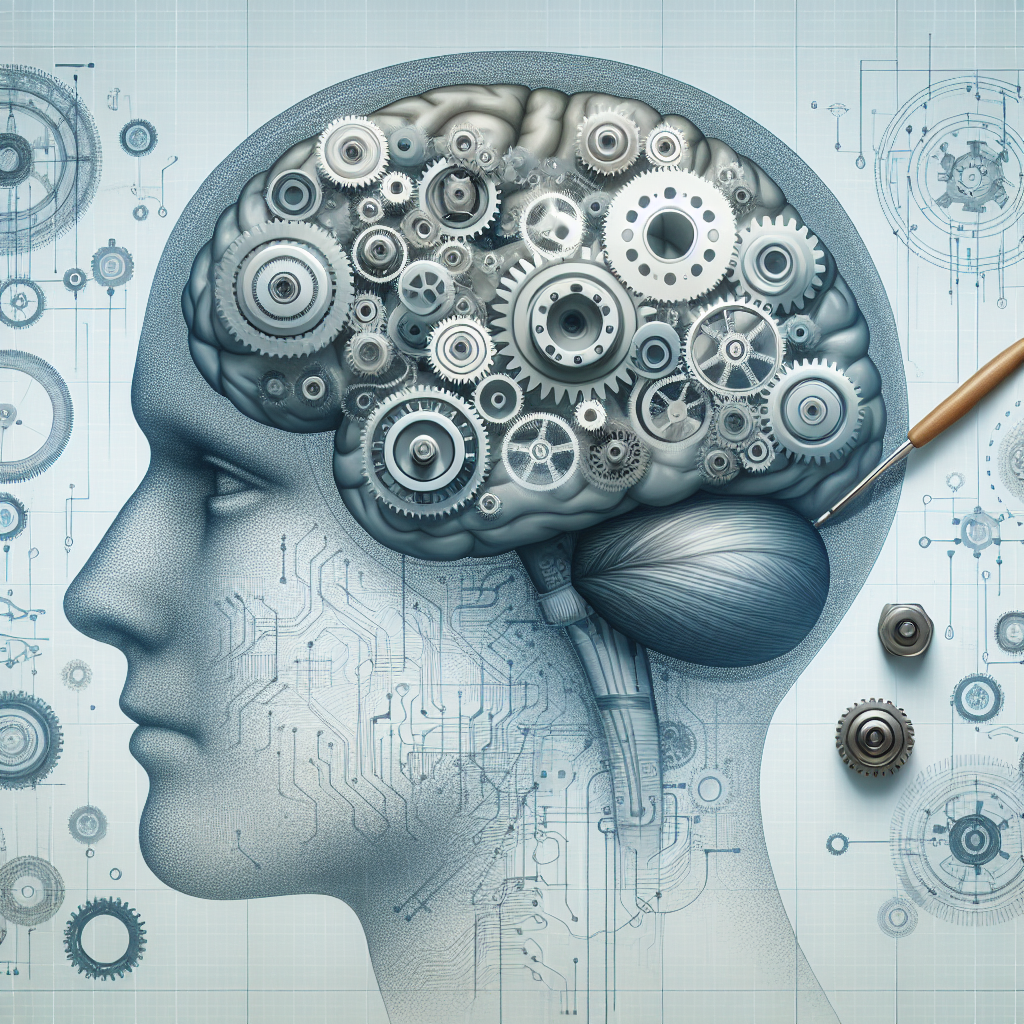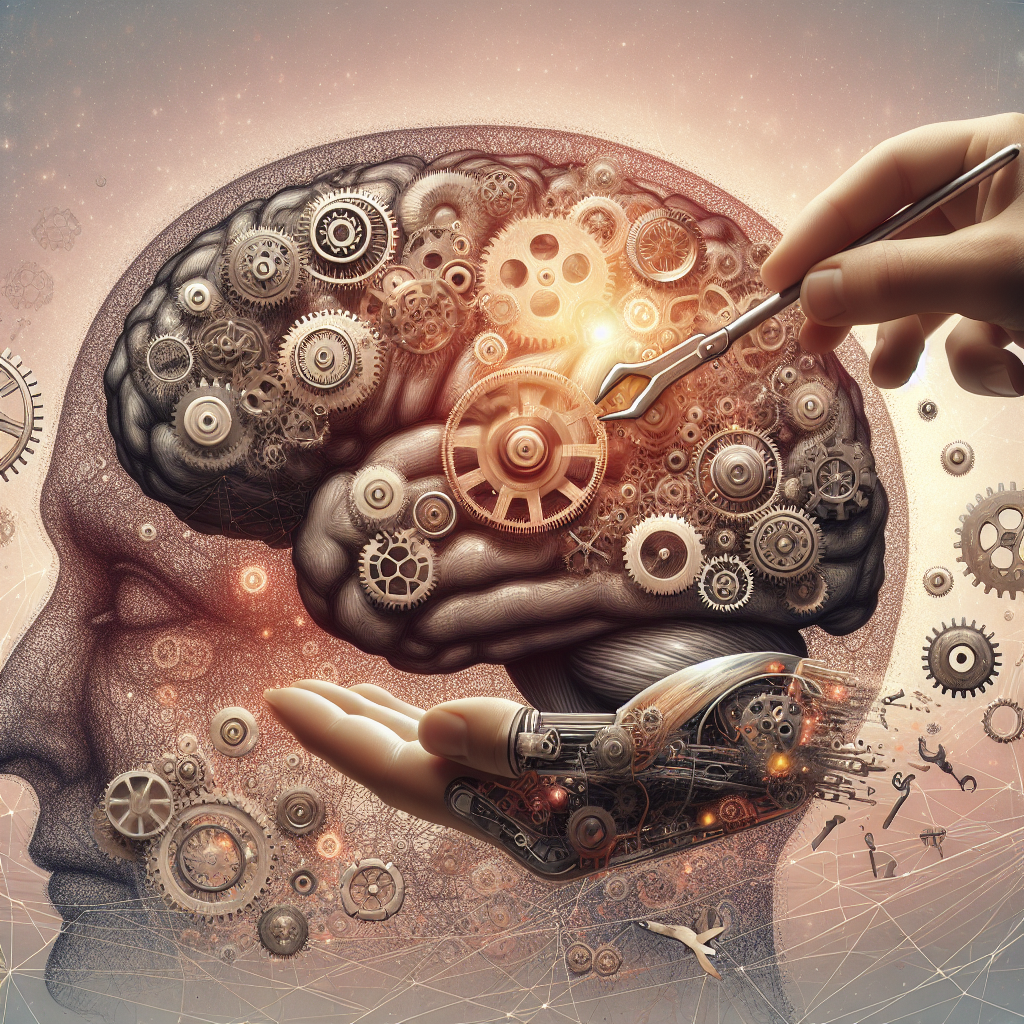Is Cognitive Rehabilitation Therapy Effective For Individuals With Traumatic Brain Injuries?
Stepping into the enigmatic world of cognitive neuroscience, you are about to embark upon an insightful journey, exploring the effectiveness of Cognitive Rehabilitation Therapy for those living with traumatic brain injuries. Stroll through the intricacies of the human brain, as we shed light on the poignant tales of trauma, recovery, and the therapeutic techniques that bridge the gap between the two. Today, you will acquaint yourself with the potential power of Cognitive Rehabilitation Therapy in transforming lives punctuated by the often unseen, yet life-altering, impact of brain injuries. Buckle up as we traverse the steep gradients of neurocognitive research and clinical experience to understand how, why, and to what extent, this form of therapy is proving to be beneficial for survivors of traumatic brain injuries.

Understanding Traumatic Brain Injuries
The human brain, wonderfully complex and intricately delicate, can sometimes be disrupted by an abrupt, violent force leading to what’s known as a traumatic brain injury, or TBI.
Definition of Traumatic Brain Injuries
As you venture deeper into the labyrinth of the mind, picture a traumatic brain injury as an unpredictable storm, leaving chaos in its wake. It’s a brain dysfunction caused by an external force, such as a violent blow or jolt to the head or body, that shakes up your neural architecture.
Common Causes of Traumatic Brain Injuries
Much like any storm, TBIs have common causes or rather precursors, setting the stage for their disastrous onset. Vehicle-related collisions, falls, sports injuries, and violent attacks represent the key suspects behind these injurious incidents. Even an object piercing the skull can trigger a traumatic brain injury.
Potential Short-Term and Long-Term Effects
Immediate aftermath of a TBI could mirror visiting an unfamiliar, alien land. You may face confusion, disorientation, and memory loss. As for the long-term effects, you could encounter terrain that’s constantly shifting—ongoing headaches, mood changes, difficulties in cognitive function—(remembering, learning and concentrating), and even occasional seizures.
Overview of Cognitive Rehabilitation Therapy
Awaiting you now is an introduction to a kind of cerebral renaissance – cognitive rehabilitation therapy.
Definition and Purpose of Cognitive Rehabilitation Therapy
Cognitive Rehabilitation Therapy is like a virtuoso artist with a singular purpose—to restructure, reinvent, and revitalize a disheveled mind. It’s a goal-oriented program intended to improve cognitive functions (like thinking, learning, and remembering) that have been disrupted due to a brain injury.
Typical Elements of a Cognitive Rehabilitation Program
Within this therapeutic artistry, there exist numerous unique elements or techniques seeking to tame the tempest that is TBI. Utilizing compensatory strategies, developing patient-specific therapeutic activities, enhancing social interaction abilities, and providing patient and family education forms the very essence of this magical tapestry.
Who Can Benefit from Cognitive Rehabilitation Therapy
As much an art as it is a science, this form of therapy paints beautiful possibilities for those who have had their inner worlds disrupted by TBIs, stroke, tumors, and even certain neurodegenerative diseases. Those who seek a harmonious symphony amidst cognitive dissonance can indeed find solace here.
How Cognitive Rehabilitation Therapy Works
Prepare to unravel the workings of cognitive rehabilitation therapy, a dance of neural adaptability and resilience.
The Cognitive Retraining Process
The heart of the therapy lies in its cognitive retraining process. Imagine a ballet choreographer guiding dancers toward a flawless performance. Therapists target specific cognitive deficits and drill the faded skills, coaxing back the rhythm of your cognitive functions.
Role of Therapists in Cognitive Rehabilitation
In this intriguing symphony, therapists are the conductors controlling the tempo. Their job stretches from identifying cognitive impairments to designing patient-tailored strategies. By doing so, they spark a chain of neural rewiring, leading to improved cognition and a resurrected self-dependency.
Integration of Family in the Therapy Process
The family in this dance is akin to an appreciative audience cheering for the performer. Their understanding, support, and encouragement form an indispensable component in the patient’s recovery journey, fueling their desire to overcome cognitive hurdles and return to normalcy.

Understanding Cognitive Deficits after TBI
Let’s delve into the hidden chambers of the mind that bare the cognitive deficits following a TBI.
Common Cognitive Deficits after a Traumatic Brain Injury
Post-TBI, the cognitive gallery may display disheartening images of memory problems, attention deficits, impaired executive functions (like decision-making and problem-solving), and communication challenges, painting a landscape of loss and confusion.
How These Deficits Affect Day-to-Day Life
Each cognitive deficit, like a misplaced piece of a puzzle, hampers your daily rhythm and functionality. Routine tasks feel alien, social communications become weaved with awkward silence, and workplace efficiency suffers of lost disruption.
Addressing Cognitive Deficits in Therapy
Here, cognitive rehabilitation therapy becomes the missing piece, realigning disrupted functions. By honing underperforming skills and teaching compensatory strategies, it rebuilds the cognitive picture, restoring the harmony of daily life.
Assessing the Effectiveness of Cognitive Rehabilitation Therapy
Journey with us through the critical task of measuring the magic of this cognitive therapy.
Measurement Tools Used to Assess Therapy Effectiveness
The tools here are akin to extended eyes, gauging the depth and breadth of cognitive rehabilitation’s impact. Neuropsychological tests, performance-based assessments, and even event-monitoring systems form part of this insightful toolkit.
Considerations in Assessing Therapy Success
But remember, every cognitive rejig is unique. Factors such as the degree of brain injury, the time elapsed since injury, the patient’s motivation, and support from family and surroundings constitute the complex matrix that defines therapy success.
Importance of Individualized Therapy Goals
In this cognitively confusing circus, individualized therapy goals serve as spotlights, throwing focus on targeted areas for improvement. They guide the proverbial rehabilitation ship, steering it towards a course of precise recovery.
Scientific Evidence Supporting Cognitive Rehabilitation Therapy
Behold the scientific backbone of cognitive rehabilitation therapy.
Current Research Findings on Cognitive Rehabilitation
Current research on the subject underscoring progress, acts like a mirror reflecting the efficacy of this restorative art form. Studies show that cognitive rehabilitation therapy significantly improves attention, memory, and executive functions in TBI survivors.
Case Studies Demonstrating Successful Cognitive Rehabilitation
The chorus of success stories adds grayscale to this scientific canvas. A trove of case studies indicate substantial recovery in TBI patients post-cognitive rehabilitation, shedding positive light on the therapeutic framework.
Ongoing Challenges and Controversies in Research
Yet, much like any burgeoning field, cognitive rehabilitation isn’t devoid of a scientific maelstrom. Disparities in study methodologies, variations in individual responses to therapy, and a lack of consensus on evaluation parameters raise intriguing questions for the scientific community.
Limitations and Challenges in Cognitive Rehabilitation Therapy
Walk with us into the storm’s eye as we explore the limitations and challenges in this restorative journey.
Potential Therapy Limitations
Despite its proven effectiveness, cognitive rehabilitation has inherent limitations. Certain cognitive deficits—particularly abstract reasoning abilities—tend to be resistant to this treatment.
Common Challenges Patients Face
Patients often grapple with issues relating to access, time, commitment, and financial constraints. Moreover, the emotional toll and fatigue from persistent efforts to regain lost cognitive abilities cannot be understated.
Addressing these Limitations and Challenges
Yet, with a determined spirit, these hurdles are addressable. Early interventions, sustained efforts, extended support, and innovative therapy methods are potential solutions in the face of these complexities.
Alternative Therapies for Traumatic Brain Injury
We now unveil alternative therapeutic paths that can complement or stand-alone as treatment methodologies.
Other Therapy Options
Conventional medicine often treads parallel paths of physiotherapy, occupational therapy, and speech and language therapy that can aid patients in regaining lost abilities.
Utilizing Multiple Therapies
Multiple therapies, much like distinct hues in a painting, can be blended ingeniously to provide a holistic healing landscape for TBI patients. This combinatory approach can potentially accelerate the recovery process.
Role of Holistic and Alternative Therapies
Enter the realm of unconventional healers—acupuncture, music therapy, yoga—all part of the holistic and alternative therapy landscape. Often overlooked, this synergistic combination can provide a peaceful, nurturing environment for recovery.
Personal Stories: Recovering from Traumatic Brain Injury
Here, we share stories of resilience and recovery that build bridges of hope for those embarking on the rehabilitation journey.
Firsthand Accounts of Therapy Success
There are innumerable narratives of triumph over adversity. Firsthand accounts of survivors thriving post-therapy, reassuming roles once deemed lost are lighthouses in the storm for those battling similar situations.
Gaining Insight from Personal Experiences
These narratives aren’t just sources of inspiration, but also insightful guidebooks offering wisdom and practical advice. They help us understand the intricate dance of recovery better and navigate the winding roads of cognitive rehabilitation.
Inspiring Stories of Cognitive Rehabilitation
Meet the warrior who fought memory loss and emerged victorious, or the survivor who reconstructed their brain’s executive functions despite odds. Their unwavering spirit is testament to the transformational magic of cognitive rehabilitation.
Future of Cognitive Rehabilitation Therapy
Now let’s usher you into the potential future of cognitive rehabilitation therapy.
Upcoming Developments in Cognitive Rehabilitation
Prepare for quite a spectacle as avant-garde techniques and adaptive technologies start claiming center stage. Tailored mobile apps, simulated environments, and virtual reality interventions promise a dynamic future in cognitive rehabilitation.
The Future of Brain Injury Treatment
Imagine a future where brain injury treatment prances across a field of artificial intelligence, machine learning, and genetic engineering, offering precision treatment that’s programmed to perfection.
Role of Technology in Future Treatments
In this grand vision, technology will likely be the conductor, steering the orchestra of comprehensive cognitive rehabilitation. The symphony advances onward, harmonizing therapy, accessibility, and results in a triumphant ballad of healing and recovery.

